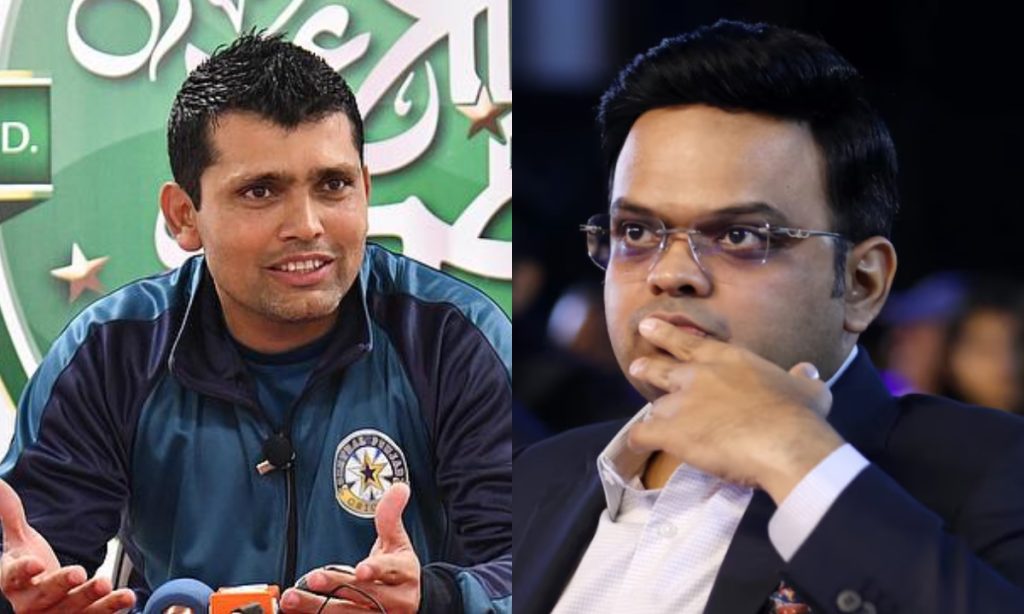In a move that has sparked discussions across the cricketing world, Pakistani cricketer Kamran Akmal has publicly requested the Indian government to permit Team India to travel to Pakistan for the 2025 ICC Champions Trophy. This gesture, while rooted in cricketing fraternity, touches on deeper political and cultural undercurrents between the two nations.
Kamran Akmal, known for his aggressive batting and sharp glovework, has often been vocal about cricket’s role in fostering peace. His recent appeal, made through social media and interviews, underscores the sport’s potential as a diplomatic tool. His call comes at a time when cricketing ties between the two countries are at a delicate juncture, with no bilateral series since 2012-13 due to political tensions.

The backdrop to Akmal’s request is the 2025 ICC Champions Trophy, scheduled to be hosted by Pakistan. This event, returning after a hiatus, holds significance not just for cricket but for the geopolitical landscape of South Asia. The tournament could be a platform for showcasing Pakistan’s ability to host international events, potentially improving its image on the global stage. However, the participation of India, a cricketing giant and Pakistan’s arch-rival, adds layers of complexity.
“First You Took Away The Asia Cup From Pakistan And You’re Now Talking About The Champions Trophy Why? If India Invites Pakistan, Our Government Never Stop Us From Playing. The Indian Government Should Also Do The Same, Politics Should Be Kept Away”. Akmal Said.
The Indian government’s stance on allowing its cricket team to travel to Pakistan has historically been cautious, primarily due to security concerns and political relations. Plea of Kamran Akmal, therefore, isn’t just about cricket; it’s an appeal for a gesture of goodwill, suggesting that cricket could lead the way in thawing relations. His argument resonates with sentiments often echoed by cricket enthusiasts and former players from both nations, who believe that cricket matches could serve as confidence-building measures.
However, the feasibility of Akmal’s request faces several hurdles. Firstly, the Indian government’s decision would be influenced by security assessments, diplomatic relations at the time, and domestic political considerations. The BCCI (Board of Control for Cricket in India) would also need to navigate through its own set of challenges, including player safety, fan expectations, and the commercial implications of such a tour.
From a cricketing perspective, the participation of Team India in Pakistan would be a boon for the sport. The rivalry between the two teams is legendary, drawing massive viewership and adding a unique flavor to any tournament. For Pakistan, hosting India would not only be a cricketing coup but also a significant event in terms of national pride and international recognition.
Akmal’s initiative, while noble, highlights the intricate dance between sports and politics. Cricket, often dubbed a religion in both countries, has the power to unite or divide, depending on the political climate. His call for unity through cricket might be seen as overly optimistic by some, given the deep-seated issues between India and Pakistan. Yet, it also reflects a genuine desire for peace, where cricket fields could become neutral grounds for dialogue.
Kamran Akmal’s request to the Indian government to send Team India for the 2025 Champions Trophy in Pakistan is more than a cricketing plea; it’s a call for sportsmanship to transcend political boundaries. Whether this gesture will lead to actual participation remains to be seen, but it certainly reignites the debate on the role of cricket in Indo-Pak relations, offering a glimmer of hope for those who believe in the unifying power of the sport.

